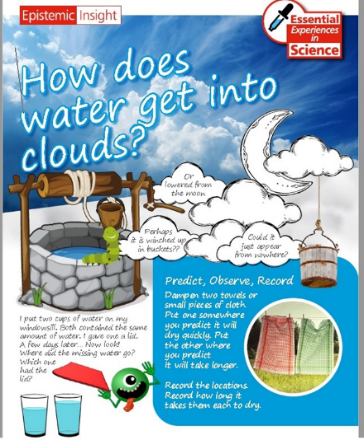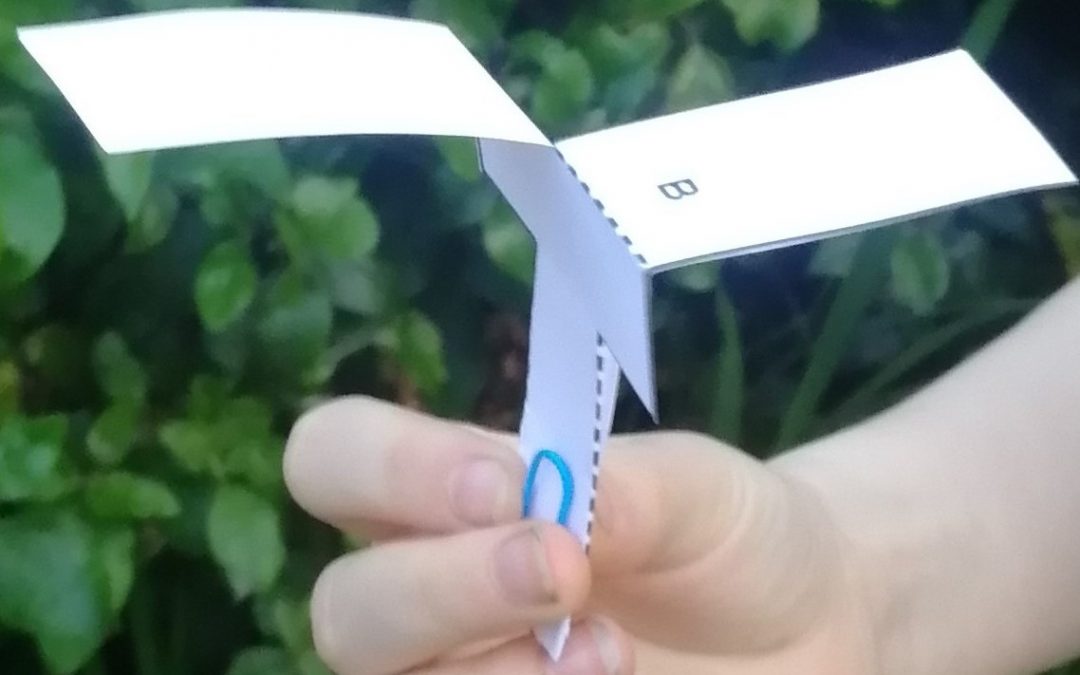Written by Sherry Simpson

As you prepare to embark on a new academic year, we would like to invite you to take part in a new and exciting teaching and learning scheme to help schools and families through the recovery phase.
‘Essential experiences in science’ is aimed at children in Years 4-7 (8-12) and offers opportunity to teach scientific enquiry that is practical and hands-on. It includes bright, friendly investigation cards that can be supplemented with simple equipment such as a straw or pipette, designed to be easily moved between home and school in the event of a local lockdown or household quarantine. We hope it gives schools and families the reason and motivation they need to work through challenging times, together in partnership. With enough activities to cover several weeks, it means children can continue to have essential experiences in science and teachers can confidently build science into their plans for the term. Some cards will focus on a science concept and others bridge curriculum areas to create ‘cross-disciplinary enquiries’ and real-world problem solving.

https://www.epistemicinsight.com/ees/
Through a series of professional development webinars, we invite teachers to take part in up-skilling your enquiry-pedagogy, with the opportunity to be involved in action research. The aim is to help young people to develop their understanding of the role and relevance of science in addressing different types of questions. In our view to simply say that we can teach science “in a cross-curricular way” is not enough. There must be a reason to do so that means the child gains a better understanding of the nature of science by doing this, compared with learning science in single-discipline science lessons. Therefore, we will highlight scientific enquiry throughout the scheme.
According to the Association for Science Education there are five types of enquiry:
- Observing changes over time
- Noticing patterns
- Grouping and classifying things (noticing similarities and differences)
- Comparative and fair testing
- Finding things out using secondary sources of information (researching)
The webinars provide access to a range of free teaching resources and equipment which will be sent directly to your school, as well as online support. Enabling opportunities in school and at home to discuss what makes a question a ‘science question’. By adopting an enquiry pedagogy which aims to develop students’ disciplinary knowledge about science and in particular the importance of observation as a method of scientific enquiry. For more information click here
The primary webinar series starts in September: on Mondays 4:00-5:15pm. See table below for more details and registration links:
| Webinar title | Registration | Date and time |
| Introduction to Epistemic Insight | Click here to register | 28th September |
| Ways to teach Epistemic Insight | Click here to register | 5th October |
| Essential Experiences in Science: Why do spinners spin? | Click here to register | 12th October |
| Essential Experiences in Science: Why did the Titanic sink? | Click here to register | 9th November |
| Bridging questions: How do we make sense of music? | Click here to register | 16th November |
| Essential Experiences in Science: Why plants matter | Click here to register | 23 November |
| Bridging questions: Reaching the South Pole | Click here to register | 30th November |
| Essential Experiences in Science: Grip or Slip | Click here to register | 7th December |
| Bridging questions: What do maps tell us? | Click here to register | 14th December |
If you wish to take part in the CPD – we look forward to working with you. If you are interested in the action research opportunity, our research tools will help you track the scheme against its aims – to build children’s scientific skills and understanding, love of learning and strengthen the home-school partnership.
Give your students their best experiences of hands-on science!
Join us on this exciting journey by booking onto the webinars via links above to gain access to free resources, equipment and support.
The webinars are also available to book through Eventbrite here. You will find opportunities for secondary schools there too. Please pass the info to your networks.
Email lasar@canterbury.ac.uk for further information.

